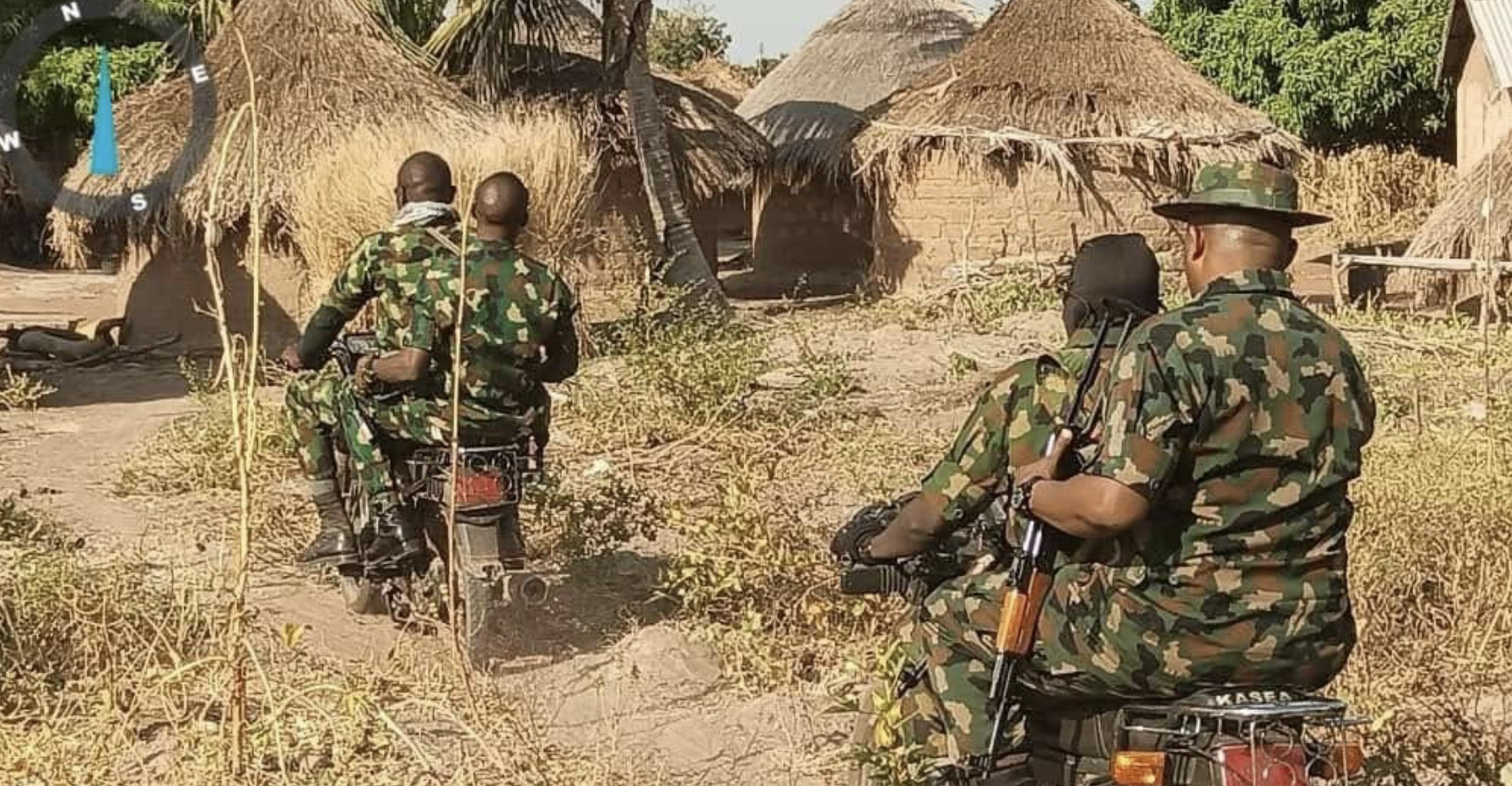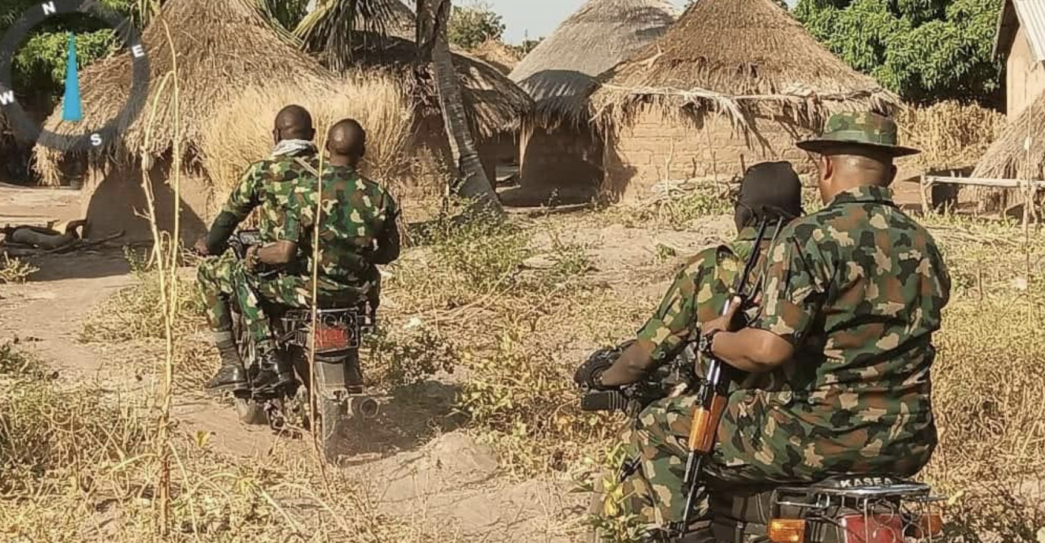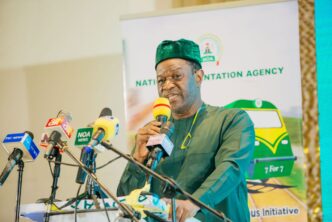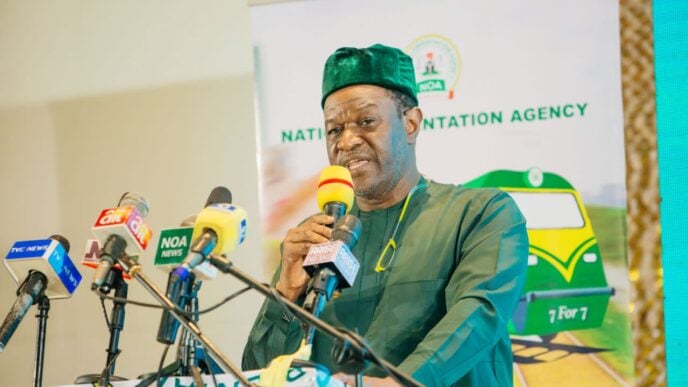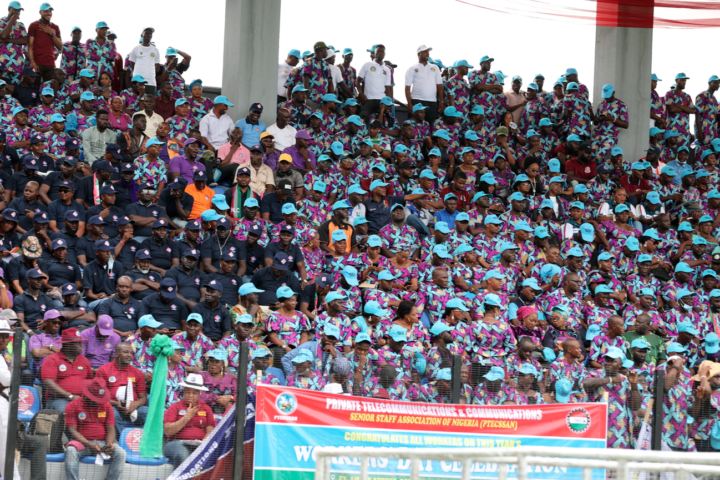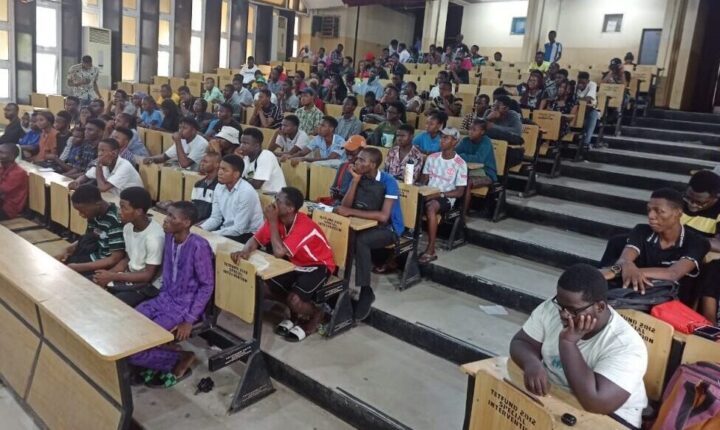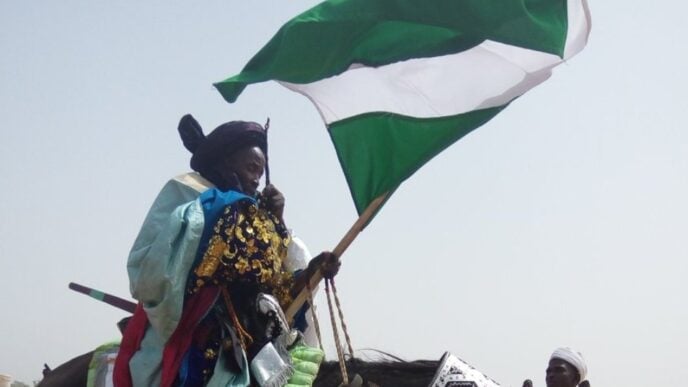BY LEKAN OLAYIWOLA
After over a decade of counterinsurgency, it is clear that military might alone cannot extinguish the flames of extremism. Fortunately, the Nigerian armed forces realise this and have been arming its officers and men in the theatre of war with not just bullets but a “balm” — exploring non-kinetic approaches including peace operations and trauma healing.
However, despite, towns recaptured, and commanders neutralised, Boko Haram and ISWAP still haunt Nigeria’s margins, recruiting, regrouping, and regenerating.
The question we must now confront is not how much force is enough, but how globally proven trauma-informed, non-kinetic approaches can be fully prioritised and scaled in our playbook to sustain government’s national security efforts.
Advertisement
Healing a wounded people requires connected state and non-state actors
Successful trauma-informed security models demand coordination. Thankfully, the trend in Nigeria’s military doctrine is gradually shifting towards a whole-of-government as well as a whole-of-society approach in terms of inter-agency collaboration and civil-military relations. In Uganda, Colombia, and Rwanda, the military worked with ministries of health, education, women’s affairs, and religious institutions.
The Nigeria armed force can borrow a leaf from them by increasing or including the participation of ministries and agencies like women affairs, NAPTIP, and the National Orientation Agency at the strategy table.
Advertisement
Operation Safe Corridor is active and needs to be strengthened. Funding of the ongoing reintegration efforts should be sustained while scaling trauma-informed model as part of our security toolbox.
Understanding terrorism’s true terrain
The Nigerian terrorism terrain is not just forests, it includes embodied fractures. Boko Haram’s theology, ISWAP’s logistics and the vastness of Sambisa may pose a complex operational and logistical challenge, the problem is not insurmountable. Uganda’s LRA abducted children. Rwanda had genocidaires embedded in communities. Colombia’s FARC wielded ideology, violence, and fear.
Yet all embraced trauma-responsive frameworks. Why not Nigeria? What we face is not exceptional. But what we need is more integration of strategy, institutions, healing and justice.
Advertisement
We already have the tools, we just need to use them fully
Nigeria is not starting from zero. It has made meaningful attempts at non-kinetic approaches from deradicalisation to community dialogue, but these efforts remain fragmented, underfunded, and poorly integrated into our national security thinking. Operation Safe Corridor stands as a well-intentioned but misunderstood initiative. Launched in 2016 to rehabilitate low-risk Boko Haram ex-combatants, it offers psychosocial care, religious reorientation, and vocational training.
Yet, despite some positive outcomes, the programme suffers from chronic underfunding and weak political support. More critically, communities affected by insurgent violence sometimes feel bypassed when their voices are excluded from decisions about who returns, when, and how. Reintegration without reconciliation is not sustainable. For healing to be real, the process must prioritise not only the perpetrator’s reform but also the survivor’s recovery.
In places like Borno and Yobe, civil-military dialogues have shown that even modest efforts at trust-building can shift dynamics. Women’s groups, traditional leaders, and security officers have gathered in shared spaces to voice grievances, negotiate tensions, and co-develop local security arrangements. These forums work, but they are often sporadic, externally funded, and not embedded within the national security strategy. What’s missing is continuity, not capacity.
Advertisement
Meanwhile, survivor-led initiatives, including trauma healing circles, memory projects, and community-based counselling, continue quietly in the background. Mostly run by local NGOs or faith institutions, these efforts have restored a sense of dignity and narrative control for many affected by violence. Yet, they are rarely recognised as part of the official peacebuilding or security apparatus. This disconnect not only devalues their contribution, it also limits the reach and resonance of national reconciliation.
Finally, Nigeria’s rich traditions of indigenous justice and spiritual repair from Kanuri reconciliation rituals to the moral authority of Shehu councils offer culturally grounded frameworks for reintegration. These are not “alternative” systems. They are already embedded in communities and can offer legitimacy that formal institutions lack. But they remain largely side-lined in official reintegration strategies, often consulted late, if at all.
Advertisement
The challenge, then, is not the absence of tools; we just have to connect them. Nigeria is fighting a complex war and our security playbook need not be divided. Healing and justice need to be placed on equal footing with the use of force and surveillance, so that peace will not remain fragile and precarious.
Peace through dignity, not bulletsAerial raids look good on TV. Peace doesn’t. While allocating resources to fund weapons is necessary, funding trauma healing is no less important. The reality is that war-weary communities want dignity before disarmament, truth-telling before reintegration, justice before amnesty. When former fighters return without community consultation, people feel unsafe and unheard. We cannot kill our way to peace, nor reintegrate our way past justice.
Advertisement
Five Steps to Shift the Tide
To rescue our nation from endless war, we must adopt a new paradigm of security, one rooted in restoration, not just retaliation:
Advertisement
Establish a Joint Civil-Military-Psychosocial Task Force
This should be truly inter-agency and not under the military, drawing from local NGOs, faith institutions, educators, and traditional leaders.
Make Trauma Education Part of the National Curriculum
Equip youth in conflict zones with tools for resilience, memory work, and reconciliation.
Elevate Traditional Justice Systems
From Kanuri healing rituals to Shehu councils in Borno, local frameworks should lead reintegration, not follow it.
Fund Survivor-led Storytelling Projects
Rwanda and Colombia didn’t just reintegrate fighters, they prioritised victims. Nigeria should do the same.
Train Soldiers in Trauma Awareness
This should not be done as charity, but as strategic training just like weapons handling. Knowing how trauma operates is as important as knowing how to fire a rifle.
It’s time to Redefine Security in Nigeria
We do not lack courage to fight wars. We only have to reimagine how we wage peace. Nigeria must move away from a 20th-century security paradigm and boldly adopt a 21st-century one that prioritises justice, healing, and wholeness.
While peace is not necessarily the absence of gunfire; it is the presence of dignity, memory, and trust. In our efforts to end terror, we must treat the wounds it feeds on. It’s time to fight smart and that means fighting with empathy, not just arms.
Lekan Olayiwola is a peace and conflict researcher and practitioner. He can be reached via [email protected]
Views expressed by contributors are strictly personal and not of TheCable.
